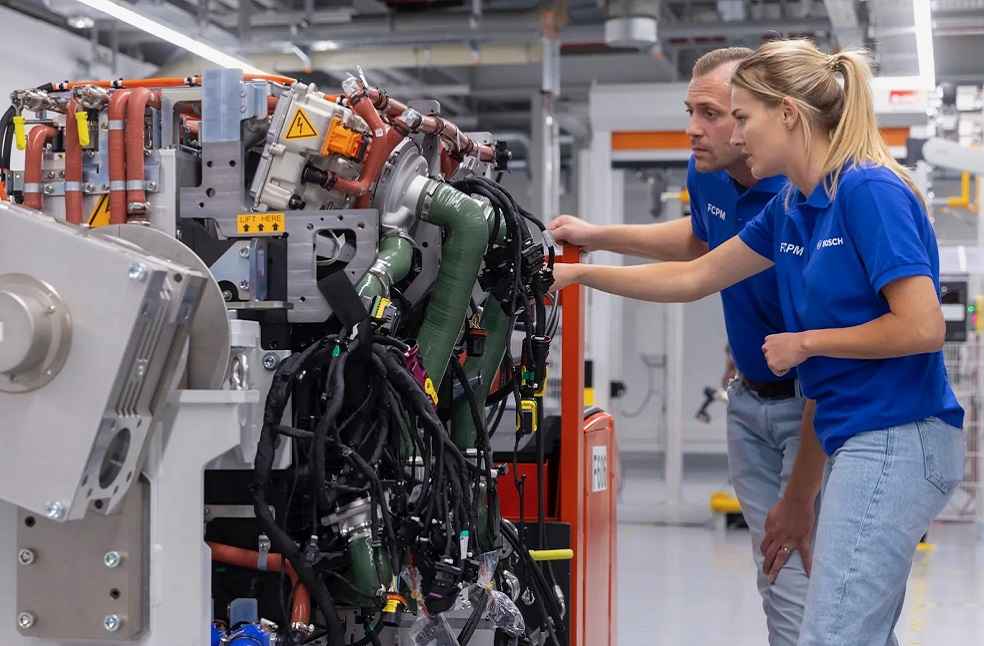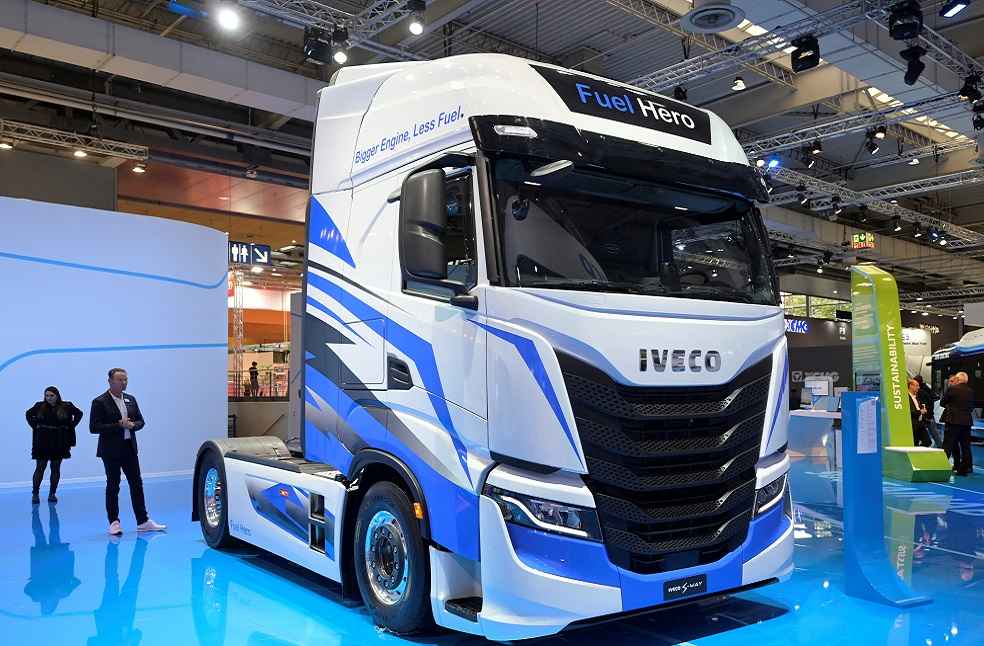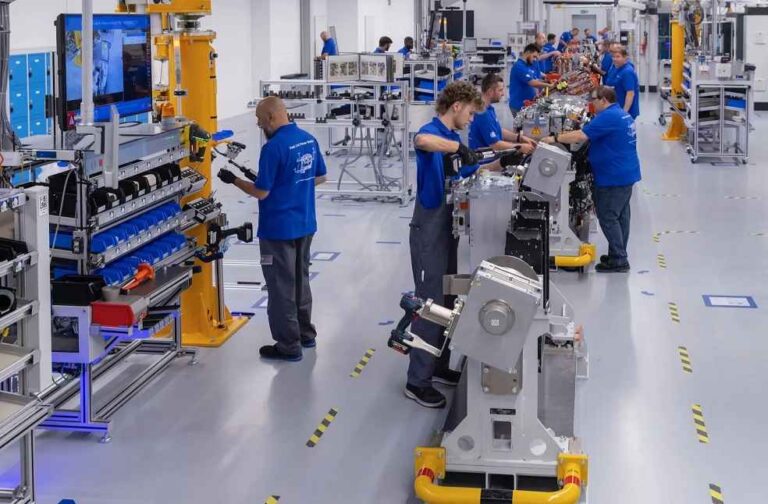Automotive heavyweight Bosch anticipates hydrogen technology as a pivotal player within the future trucking industry. The company’s projections for this industry suggest a potential $3.5 billion revenue stream from hydrogen combustion engines, fuel cells, and electrolyzers—devices responsible for hydrogen production.
A recent press release marked the debut of fuel-cell module production at Bosch’s Stuttgart-Feuerbach plant, located within Germany’s borders. Nikola, known for its Tre Class 8 fuel-cell semi truck, is set to receive the inaugural fuel-cell modules. Preparations are underway for Nikola to commence truck production at its Coolidge, Arizona facility this year, utilizing Bosch fuel cells, courtesy of a granted license.

Further expansion plans see Bosch targeting its U.S. plant in Anderson, South Carolina, for manufacturing fuel-cell components. The company maintains an optimistic view on the global stage, predicting that 20% of new trucks, weighing above six tons, will feature a fuel-cell powertrain by 2030.
Beyond fuel cells, Bosch also sets its sights on hydrogen combustion—an alternative to conventional diesel or gasoline, which combusts hydrogen within an internal combustion engine. This technology is set to make its market appearance in 2024. Four orders have already been placed for “production projects,” and Bosch envisions six-figure sales volumes by 2030.

“Bosch mobility chairman Markus Heyn asserts, “A hydrogen engine replicates all functionalities of a diesel engine, and additionally offers a climate-neutral operation.” This assertion does not account for pollutants such as NOx—produced during hydrogen combustion—known for their detrimental health and climate effects.
Having once supplied diesel-powertrain components to VW, Bosch has strived to distance itself from the diesel scandal. The company affirmed its support for EVs and fuel-cell vehicles in 2019, while also expressing intent to persist with investments in combustion-engine tech up to the 2040s, in 2021.
The decision to concentrate on hydrogen for high-demand applications like commercial trucks aligns with predictions from energy experts, such as those from the Rocky Mountain Institute (RMI). They anticipate an upswing in green hydrogen usage over this decade, presenting a viable, cleaner alternative to diesel.

Hydrogen also holds potential as a substitute for liquid fuels in areas where batteries may not suffice, like aviation and large-scale transport. Despite this, consensus on the viability of hydrogen is not widespread. Critics propose that the surge in availability of megawatt charging for battery-powered semis could sidestep the need to overcome hydrogen infrastructure challenges.
As the urgency to discover cleaner alternatives for the trucking industry intensifies, hydrogen technology emerges as a contender. Whether it will dominate this space, and the role Bosch will assume in this transition, remains to be seen.
KNOWLEDGE | Netherlands’ Eco-Runner XIII Sets ‘Hydrogen Car World Record’





